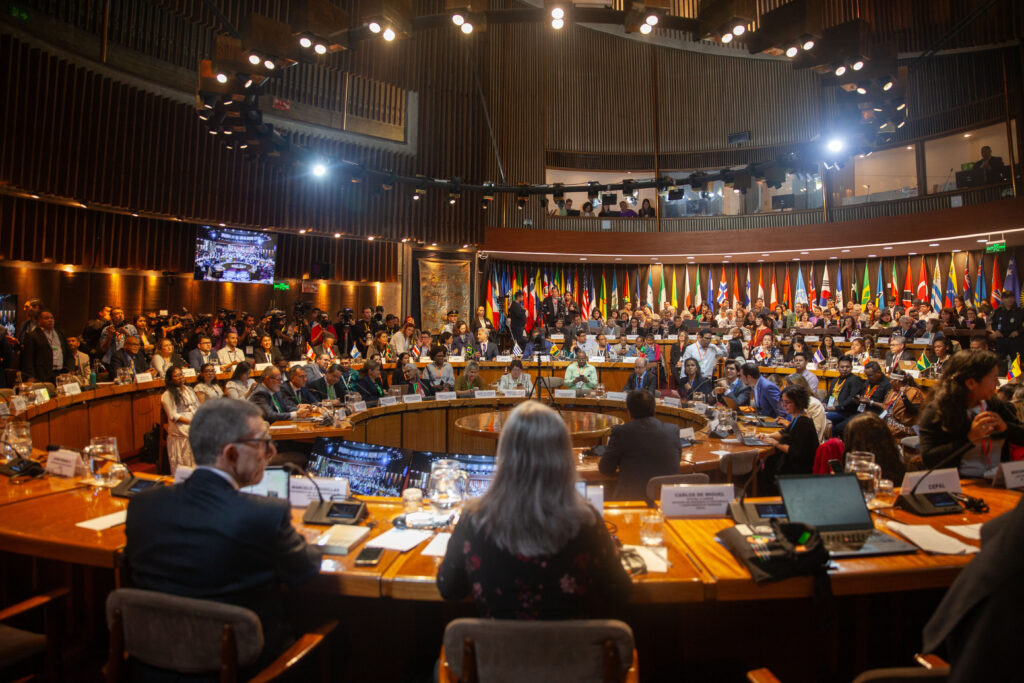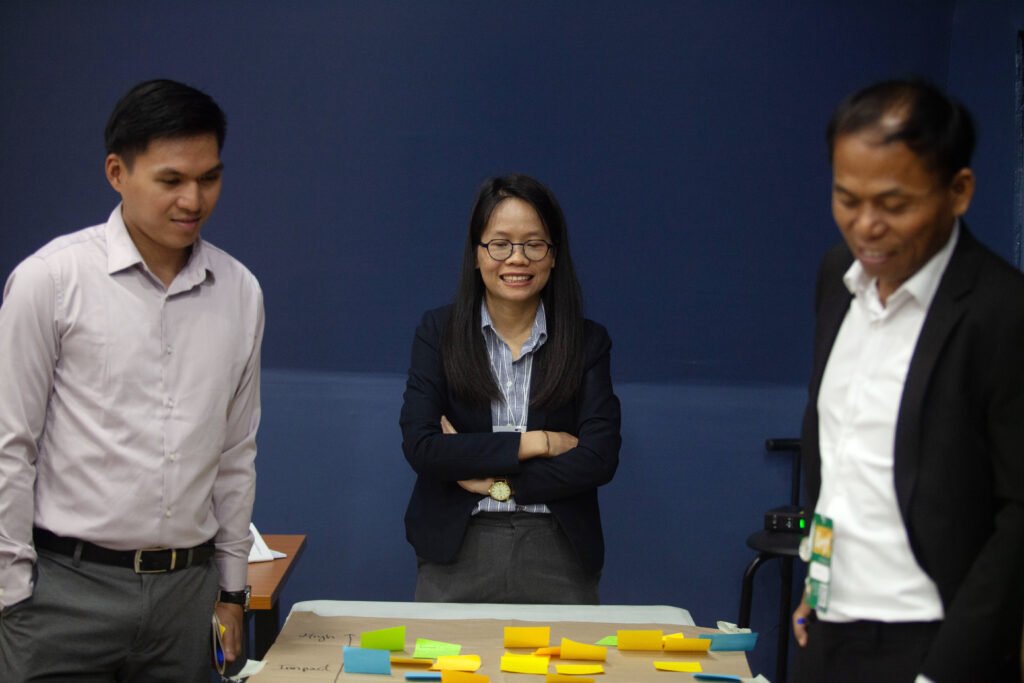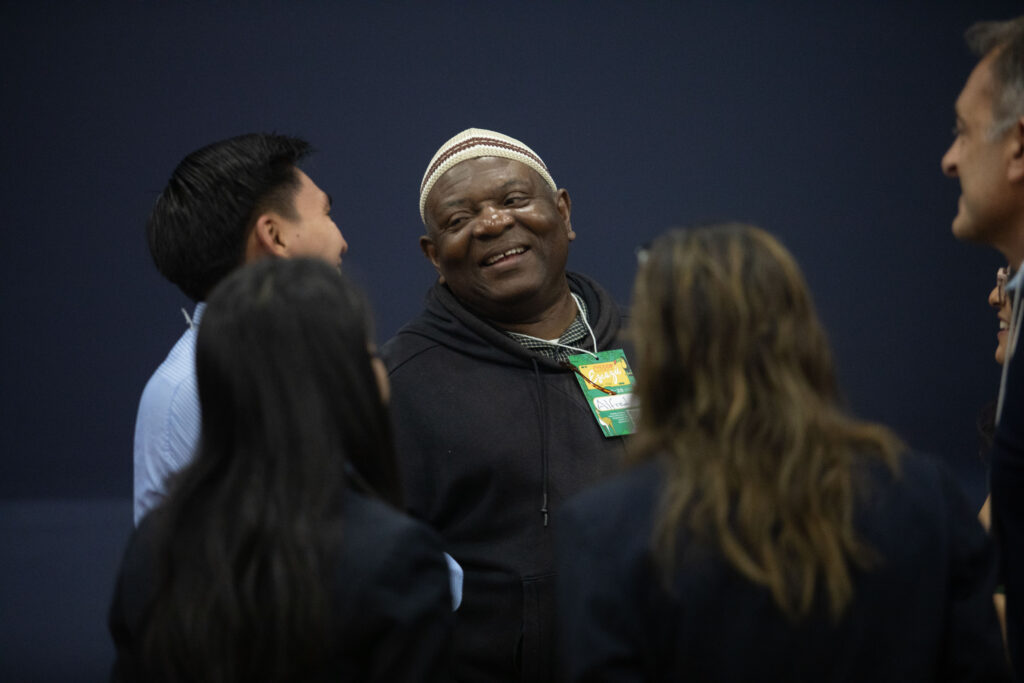
https://earthrights.org/blog/lessons-from-escazu-for-environmental-democ...
By Manny Zhang
Stakeholders in Southeast Asia and Africa are now embarking on processes to develop their own regional environmental rights frameworks. In Southeast Asia, the ASEAN Intergovernmental Commission on Human Rights has tasked a working group with developing a declaration on environmental rights. Meanwhile, in Africa, Environmental Rights Africa (ERA), a consortium of African and global civil society partners, is driving efforts for stakeholder engagement, country case studies, and a roadmap towards advocating for a legally binding agreement.
By establishing regionally-rooted safeguards for environmental rights, the Escazú Agreement has the potential to serve as a model for other regions facing similar challenges in environmental protection and threats against environmental defenders. Inspired by this, FIMA, World Resources Institute, Asociación Ambiente y Sociedad, and EarthRights International brought together 37 civil society representatives from Africa, Southeast Asia, Latin America, and the Caribbean, for a workshop on negotiating regional environmental rights frameworks ahead of the Escazú Agreement’s third Conference of the Parties.
A regional environmental rights treaty
The Escazú Agreement is the first regional environmental treaty in Latin America and the Caribbean. Rather than joining the Aarhus Convention, an international agreement on environmental democracy adopted in 1999 under the auspices of the UN Economic Commission for Europe, countries in the region recognized the need for a treaty tailored to their unique circumstances.

The Escazú Agreement not only builds on existing developments relating to access rights and strengthens the nexus between human and environmental rights but it also introduces innovative elements tailored to the region, including provisions for environmental defenders and measures addressing the needs of vulnerable groups.
Moreover, the Escazú Agreement is the first legally binding instrument to explicitly include obligations for the recognition and protection of environmental defenders. Article 9 creates a protection regime articulated at three levels: guaranteeing a safe environment for defenders; recognizing, protecting, and promoting their rights; and taking action to prevent attacks, threats, or intimidation.
Civil society participation
The active involvement of civil society played a crucial role in the adoption of the Escazú Agreement. Civil society advocated for robust modalities of participation, established a strong advocacy network, and presented specific proposals to governments. “It was the first multilateral negotiation that had a microphone for civil society,” Gomez said.
In contrast, civil society’s participation in the ASEAN process has been much more limited. Rocky Guzman, a member of the working group developing the ASEAN framework, noted, “There are still major challenges in ensuring meaningful engagement with civil society. This includes marginalization of civil society representatives in the formal process and lack of support for consultation. There is no tradition of having civil society and public participation in the development of any regional instrument in ASEAN.”

With only a month to provide feedback on the draft ASEAN framework and a stakeholder engagement plan that remains unfunded and unimplemented, civil society has hastily organized and fundraised for their own consultations. Guzman highlighted ASEAN’s opportunity to create a framework that addresses regional needs while aligning with international standards on environmental rights. However, both the draft text and the process of its development fall short of these standards.
Weaknesses and challenges
Participants also took time to reflect on the shortcomings of the Escazú Agreement and identify efforts needed for its effective implementation. A significant concern raised was the lack of participation by Indigenous Peoples in the negotiations. Indigenous leader Miguel Guimaraes from Peru highlighted the critical situation facing Indigenous communities, and stressed the importance of implementing a robust participation mechanism for Indigenous Peoples within the Escazú Agreement.
As Guimaraes shared the risks faced by Indigenous communities with workshop participants in Santiago, unidentified individuals invaded his home back in Ucayali, Peru, destroying and taking belongings and leaving a death threat on the wall. This incident, among countless others involving harassment and threats against environmental defenders, underscores the urgency behind the effective implementation of the Escazú Agreement – which Peru has still not ratified.
In Africa and Southeast Asia, the situation facing environmental defenders remains equally dire. Throughout the workshop, participants shared accounts of the challenges encountered by defenders in their efforts to protect both the environment and human rights. Alfred Brownell, an environmental lawyer from Liberia and the founder of the Global Climate Legal Defense Network, is equipping community members with the tools to document attacks against environmental defenders, highlighting the severe underreporting of such attacks in Africa. In Cambodia, a participant highlighted how the government is using the judicial system to “oppress human rights defenders and affected communities.”

Next steps
Participants underscored both the interconnected challenges of environmental defenders worldwide, as well as the need for greater South-South collaboration. The expertise of colleagues who negotiated Escazú is an invaluable resource for movements in Africa and Southeast Asia. Additionally, strategies and campaigns from other regions could offer insights for Escazú’s implementation. Connecting these three processes could, therefore, lead to advances in environmental democracy on a global scale.
During the workshop’s final session, participants discussed next steps for their regions. In Africa, this involves sharing insights from the workshop with other ERA members, conducting additional country case studies, and organizing an in-person meeting to outline a roadmap for advocating for a regional environmental rights agreement. In Southeast Asia, participants committed to identifying civil society focal points in each of the ASEAN countries, raising awareness about the ASEAN environment rights framework, and securing funding for consultations and advocacy.
Participants agreed on the importance of continuing to forge connections between civil society movements in each of the regions. However, the funding and logistical challenges to facilitate these discussions, including the detention of two defenders from Laos and Myanmar by French immigration police during transit to the workshop, highlight the systemic barriers hindering collaboration and the participation of environmental defenders from the Global South in multilateral spaces. It’s clear that more platforms like these, where defenders can build connections, share ideas, and strengthen the South-South network of environmental leaders, are crucial.









